-
UN refugee chief: Anti-Muslim refugee rhetoric helps ISISI propaganda, recruitment
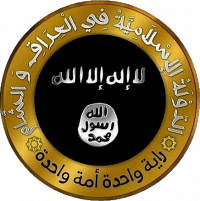
The UN refugee chief, criticizing U.S. and European politician who want to block Syrian refugees from resettling in their countries, told the Security Council Monday that “Those that reject Syrian refugees, and especially if they are Muslim, are the best allies of the propaganda and the recruitment of extremist groups.”
-
-
Could an end to Syria’s civil war be in sight?
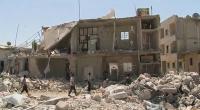
None of the previous attempts to resolve the conflict among the warring parties in Syria through negotiations, such as the Geneva II talks in the beginning of 2014, has had a happy ending. And, in retrospect most observers would go so far as to say that they were doomed to failure. But if, until now, there was zero chance for all principals, both external and internal, to work out a settlement, there currently exists a slender — a very slender — chance for success. A word of caution: Just because most of the parameters are in place does not mean an agreement will be reached. The “Clinton Parameters” — so-called because they were put forward in a last-ditch attempt at a solution by Bill Clinton in 2000, the last year of his presidency — are widely acknowledged to be the basis for any Israeli-Palestinian peace. They have been on the table for a decade and a half, and a resolution to that conflict is nowhere in sight.
-
-
Since 2001, U.S. has revoked 9,500 visas over terrorism threat
Since 2001, the U.S. government has revoked more than 122,000 visas – of which some 9,500 were revoked because of the threat of terrorism. The information was revealed by Michele Thoren Bond, assistant secretary for the Bureau of Consular Affairs at the Department of State. When Bond was asked about the whereabouts of the thousands of foreigners whose visa had been revoked, she admitted she did not know. Members of a House panel before which Bond was testifying pressed her on why public social media postings should not be routinely examined as part of the vetting process for those attempting to enter the United States.
-
-
Notorious Hezbollah militant killed in Israeli attack in Damascus
Israeli planes fired four missiles Saturday on a six-story building in the suburb of Jaramana on the outskirts of Damascus, killing Samir Qantar, a Lebanese Druze who, as a 16-year old in 1979, took part in one of the most notorious raids by Palestinian terrorists. He spent nearly thirty years in an Israeli jail, and was released in 2008 as part of an exchange agreement with Hezbollah. In the 1979 attack, Qantar took a four-year old child and her father hostage. Israeli military units exchanged fire with the terrorists, who eventually ran out of ammunition. Qantar used the last bullet in his magazine to kill the man, and then, realizing he had no more bullets, smashed the head of the four year old with the butt of his rifle, before surrendering.
-
-
Jerusalem Palestinians residency rights; German refugee vetting; Turkish assault
The Israeli government, worried about the demographic trends entailed by Israel’s continuing occupation of Palestinian lands, and aware of growing public anger and the government’s inability to end the daily knife attacks by young Palestinians against Israeli citizens, is planning to strip Jerusalem residency rights from Palestinians in East Jerusalem, which has been annexed to Israel within months after the June 1967 Six Day War; Germany is going back to a case-by-case vetting of Syrian refugees; Turkey has launched a massive military operation against Kurdish separatists.
-
-
One third of U.K.'s specialized terrorist response vehicles to be scrapped
In 2004, to meet the threat of terrorists using chemical, biological, or nuclear weapons in an attack in the United Kingdom, the government introduced the Incident Response Units (IRUs), with their distinctive red coloring with yellow stripes, at a cost of £54 million. To save money, one third of all the fire brigade vehicles which were part of the IRUs, and which would have been called out in the event of terrorists setting off a “dirty bomb,” are being scrapped.
-
-
Understanding Jihadi ideology and propaganda
There is increasing recognition from politicians and policy makers that the ideology of jihadi movements must be countered to undermine the threat. The jihadi movement’s combination of theology and political objectives needs to be uprooted through rigorous scrutiny and sustained intellectual confrontation. New research from the Center on Religion & Geopolitics finds a common ideology communicated through the propaganda of three leading jihadi groups — ISIS, Jabhat al-Nusra, and al-Qaeda in the Arabian Peninsula (AQAP). The report notes that violent ideologies do not operate in a vacuum. A fire requires oxygen to grow. A broader political culture overlaps significantly with some of the assumptions of the jihadi ideology, without necessarily being extreme or agreeing with its violence.
-
-
Terrorism pushes liberals to think more like conservatives
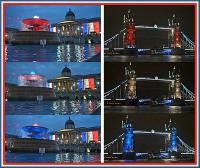
Liberals’ attitudes in the United Kingdom toward Muslims and immigrants became more like those of conservatives following the 7 July 2005 bombings in London, new research shows. Data from two nationally representative surveys of British citizens revealed that feelings of national loyalty increased and endorsement of equality decreased among political liberals following the terrorist attack. “Our findings show that terrorism shifts public attitudes towards greater loyalty to the in-group, less concern with fairness, and greater prejudice against Muslims and immigrants, but it seems that this effect is stronger on those who are politically left-leaning than those who are right-leaning,” explained one of the researchers.
-
-
No rise in anti-Muslim sentiment in U.K. in wake of Paris attacks: Poll
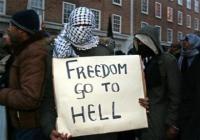
Last month’s terrorist attacks in Paris appear not to have led to a rise in anti-Muslim sentiment in Britain, a new study has shown. The new research comes amid concerns that Western public opinion may grow more hostile toward Muslims, as evidenced by the success of the Front National in the first t round of France’s regional elections three weeks ago, and the apparent popularity of Republican presidential candidate Donald Trump, who has called for a ban on Muslim immigration to the United States.
-
-
Terrorists used encrypted apps to plan, coordinate Paris attacks
The leaders of U.S. and European law enforcement and intelligence agencies have been explicit in their warnings: commercially available communication devices equipped with end-to-end encryption software make it impossible for security services to track terrorists plotting an attack – or monitor the terrorists’ communication while the attack is under way. Sources close to the investigation of the 13 November Paris terrorist attacks have now confirmed that the terrorists used the encrypted WhatsApp and Telegram messengers apps to communicate for a period before the attacks – and with each other during the attacks. What was said in those encrypted messages, and who sent and received these messages, may never be known, because the companies themselves do not have the key – or back door – to decrypt these messages. Thus, security services could not monitor such messages before an attack in order to prevent it, and cannot read these message after an attack to learn more about the terrorists’ network and support system.
-
-
Process of radicalization is becoming more complex: Experts
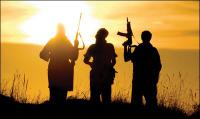
Officials and security experts have been to determine what could have led Syed Rizwan Farook and Tashfeen Malik to become radicalized and when, and over what period, the process of radicalization took place.“I think the face of radicalization has changed,” said one expert. “It’s a hybrid now — a hybrid, robust network to mobilize people to action to commit acts of violence under the banner of compelling narratives.”
-
-
Germany’s new anti-terror police unit, squeezing ISIS financially, U.S. Libyan operations
Germany on Wednesday announced the creation of a new police unit which officials said will be specifically armed, outfitted, and trained to deal with terrorism; the UN Security Council on Thursday passed a resolution aiming to make it more difficult for IIS to raise funds by selling oil and antiquities, ransom payments, and other criminal activities. It remains to be seen whether the two big buyers of ISIS oil – the Assad regime and Turkey – will comply; a Facebook photo inadvertently reveals U.S. commando presence in Libya.
-
-
“Death ray” plotter gets 8 years for plan to kill Muslims, Obama
Eric Feight, 55, has been sentenced to more than eight years in prison for plotting to build a remote-controlled radiation-emitting “death ray” with which he was planning to kill Muslims and assassinate President Barack Obama. He admitted to helping a Ku Klux Klan member Scott Crawford to modify an industrial-grade radiation device, dubbed a “death ray,” and building a switch to operate it from a distance.
-
-
Israel-Turkey rapprochement; refugees’ jewelry in Denmark; mysterious death in Argentina
Israel and Turkey were once close allies, but the relationship between the two countries has cooled after the Islamist party of President Recep Tayeep Erdogan came to power in 2002, and he was elected president in 2003. The two countries have decided that the many challenges they face in common now justify the resumption of normal relationship, even if the two countries are deeply divided over the treatment of the Palestinians by Israel; Denmark is set to pass a law which would allow authorities to confiscate jewelry from refugees entering Denmark in order to pay for some of the refugee-related expenditures by the government; the new government in Argentina will reopen the investigation in to the mysterious death in January of a prosecutor who was about to charge former president Cristina Fernandez de Kirchner with covering up Iran’s involvement in the killing of eighty-five Argentinian Jews in 1994.
-
-
New evidence released showing deaths in Syrian state detention centers

Human Rights Watch has released new evidence that up to 7,000 Syrians who died in state detention centers were tortured, mistreated, or executed. The human rights organization says that holding Syrian government officials to account should be central to peace efforts. Observers were aware of the five large detention centers the Assad regime ran. Analysts estimate that more than 117,000 Syrian civilians were tortured and mistreated in these centers since the anti-Assad rebellion erupted in March 2011.
-
More headlines
The long view
“The Federal Government Is Gone”: Under Trump, the Fight Against Extremist Violence Is Left Up to the States
As President Donald Trump guts the main federal office dedicated to preventing terrorism, states say they’re left to take the lead in spotlighting threats. Some state efforts are robust, others are fledgling, and yet other states are still formalizing strategies for addressing extremism. With the federal government largely retreating from focusing on extremist dangers, prevention advocates say the threat of violent extremism is likely to increase.
Luigi Mangione and the Making of a ‘Terrorist’
Discretion is crucial to the American tradition of criminal law, Jacob Ware and Ania Zolyniak write, noting that “lawmakers enact broader statutes to empower prosecutors to pursue justice while entrusting that they will stay within the confines of their authority and screen out the inevitable “absurd” cases that may arise.” Discretion is also vital to maintaining the legitimacy of the legal system. In the prosecution’s case against Luigi Mangione, they charge, “That discretion was abused.”
